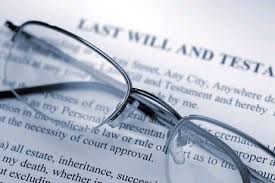 One of the most common reasons for a will to be contested is due to the fact that a lawyer did not prepare or oversee the signing of the will. There are certain “formalities” that must be followed in New York State for a will to be deemed valid by the Surrogates’ Court in which the testator (person who signed the will) was domiciled.
One of the most common reasons for a will to be contested is due to the fact that a lawyer did not prepare or oversee the signing of the will. There are certain “formalities” that must be followed in New York State for a will to be deemed valid by the Surrogates’ Court in which the testator (person who signed the will) was domiciled.
EPTL 3-2.1 states the various formalities which must be followed for that will to be valid. Without a lawyer present, the proper formalities of due and proper execution (according to statute) may not be followed. This is where it becomes so important to have an estate attorney prepare, draft, and supervise over the will execution. The will must be witnessed by two (2)”disinterested parties”. This means that they cannot take under the terms of the will nor be the spouse or child of a person who would benefit by the will being admitted to probate.
Additionally, there are certain questions that must be asked of the testator prior to signing the will. These questions must address the issue of the will signer’s mental capacity to sign, whether they are under the influence of any drugs/alcohol/medication that would render them unable to sign a legal documents, and whether they are signing the will of their own free will and accord. Undue influence is a common basis for will contests.
Furthermore, the language within the will is critical in order for it to be deemed valid. The attestation clause must recite a lot of the information that is posed to the testator in the questions at the initiation of the will execution ceremony. Moreover, the two attesting witnesses must sign the will in each other’s presence, and of course, see the testator sign the will in their presence. An attesting witness affidavit should be submitted at the end of the will, as it will make matters easier if and when the will is to be admitted to probate.
If you need an experienced Long Island wills and estates lawyer, please contact attorney Michael W. Alpert at (516) 280-7288 or malpert@alperlegal.com.